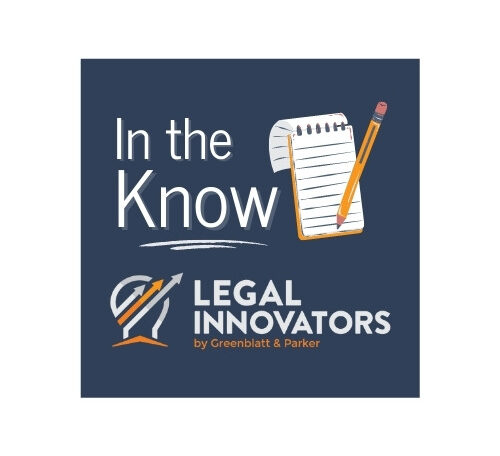As leaders of a new company in the Alternative Legal Service Provider (“ALSP”) space, the news of a possible pandemic weighs heavily on our hearts and minds. Each day brings more news of cases of people contracting the COVID-19 virus, which is spreading at a rapid rate. The constant news flow has raised questions about business travel, meetings, interviews for new talent, and employees working from home, among other considerations.
Legal Innovators is a start-up company, so we are running hard adding new clients, raising capital and adding new talent to our business. We cannot afford a significant business interruption. However, what is of greater concern to us is the health of our team (both existing and future members), our clients, and the general public.
We thought in this moment, we would lead from the heart and head, listen to the medical professionals, and be as innovative as possible to run our business while protecting our teammates.
Toward that end, here are several legal considerations and practical tips for employers trying to develop a response to the COVID-19 pandemic.
Legal Considerations:
The Centers for Disease Control (CDC) has issued an interim guide for businesses and employersthat should be an organization’s go-to resource at this time. Many other states have also issued specific resources for their communities, so be sure to check the states in which your businesses operate. These are examples of resources for Washington, D.C. and New York City.
Legal considerations that an employer should be mindful of when planning a response to the COVID-19 outbreak include ensuring a safe and healthy environment for employees pursuant to the Americans with Disabilities Act. According to guidance re-issued by the Equal Employment Opportunity Commission, whether an illness rises to the level of a “direct threat” is determined by the CDC and other public authorities. As such, employers should monitor the latest CDC, state, and local public health assessments before requiring a medical exam or making COVID-19-related inquires of employees. Employers should also ensure that policies are neutral and enforced in a manner that does not discriminate against anyone in a protected class.
Also, employers should not make risk assessments or quarantine decisions based on unfounded fears, national origin or race, but instead on a review of objective facts: travel to/from a high-risk country.
On a privacy level, employers subject to HIPPA should not publicly disclose the identity of or any specific information about the treatment and/or test results of an employee without his/her written authorization. For more information, reference this bulletin from the U.S. Health & Human Services, Office of Civil Rights.
Practical Tips:
Communication: It is always a good idea to regularly communicate with employees. In this instance, employers should do this through their Human Resources Department or through a designated COVID-19 contact person. Provide updates on symptoms and developments, address employees’ concerns, assure them that constant up-to-date monitoring of the situation is being done, and be mindful of maintaining confidentiality over these discussions.
Travel and remote work: Employers should certainly review planned travel and events and consider rescheduling or canceling these activities and/or hosting events by way of videoconference or teleconference, if feasible. And of course, employers should determine whether work-related travel is necessary and prohibit non-essential travel to high risk areas, as identified by the CDC.
Employers should also consider teleworking policies with careful thought as to maintaining confidentiality and privacy when doing so.
Office hygiene: In addition, to encouraging good hygiene among employees, employers should perform routine disinfections to frequently touched surfaces: door handles, counters, workstations etc. Providing employees with disposable disinfectant wipes and hand sanitizer are also recommended best practices by the CDC. Lastly, the CDC has also issued a Business Pandemic Influenza Planning Checklist to help employers develop a contingency plan.
For us here at Legal Innovators, we are:
- Moving to video based interviews for initial screens
- Insisting that anyone with cold symptoms stay at home
- Until we get a better handle on the virus, we’re moving to a more remote workforce
- Limiting non-essential travel.
- Following the science.

In this time, our teams will look to us for leadership and guidance. I believe we should be fact-based, measured, and not act out of emotions only so as to not turn fear into panic.
We encourage all of you to take the necessary precautions to protect your workforce and communities, not to panic, and to remain calm during these uncertain times.
We are happy to be a resource during these times for legal or business questions. Our contact information is listed below.
Thanks,
Bryan

Contact CEO Bryan Parker for business strategies.
Bryan@legal-innovators.com.




